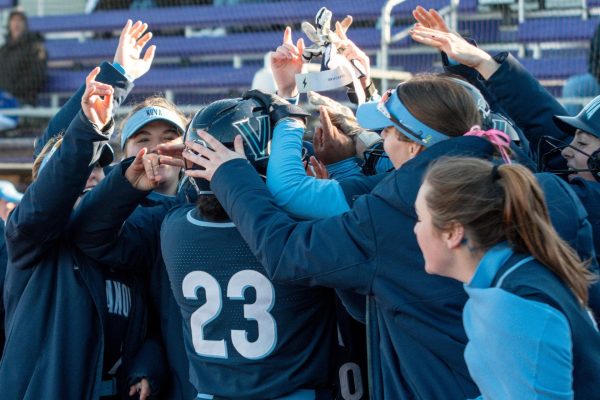Ace your big interview with these tips
April 28, 2005
As the summer season approaches, more and more Villanova students are applying for internships.
Interviews can be nerve-racking, but being prepared and organized will make you feel more confident. These eight tips are important to remember while going through the interview process.
1. Know information about your company/organization.
It’s very possible that your interviewer will ask you if you’re familiar with the company or organization to which you’re applying.
You definitely need to know information about the organization because interviewers want to hire someone who cares about their goals. Browse the company’s website before your interview, or ask your interviewer to send you some information beforehand.
2. Overdressing is better than underdressing.
Unless your interviewer informs you of a specific way to dress for your interview, it is always safe to assume that dress pants and a nice shirt or a suit is appropriate attire. If you look professional for your interview, you are much more likely to make a good impression.
3. Be prepared to answer the interviewer’s questions.
Practice answering some questions beforehand. Specifically know two or three of your strengths and weaknesses.
When asked about your strengths do not downplay your best characteristics; this isn’t being arrogant because the interviewer really wants to know.
Make your weakness something that can have a positive spin, such as “Sometimes I get too overzealous about projects, because I like to put my full energy into everything I do.”
4. Think of some questions to ask your interviewer ahead of time.
Usually at the end of the interview, the interviewer will ask you if you have any questions. It’s vital to have some in mind; asking questions will make the interviewer realize that you’re interested in the job, and are taking the interview seriously. However, it’s really important that you don’t ask about salary unless it’s absolutely necessary; give the interviewer every opportunity to offer this information. You don’t want him or her to think you’re only concerned about getting paid.
5. Don’t forget to bring copies of your résumé and writing samples.
Even if your interviewer has already received your résumé, it is important to have extra copies.
Also, bring some samples of your best and most professional writing, even if the interviewer didn’t ask for them. They may think of it as an afterthought, and it is important to be prepared.
6. Be prepared with a pen and paper.
Take a writing utensil and a small notepad with you to your interview. You can write down any phone numbers, email addresses, or other important information that the interviewer might give you. In addition, you can jot down one or two quick notes while the interviewer gives you an overview of the internship, which will show your interest in the details of what you’ll be doing.
7. Arrive 10 minutes early to your interview.
When arriving to an interview, you don’t want to arrive too early. Fifteen minutes or earlier is too early. You also don’t want to be rushing into the interview room late. If you arrive 10 minutes early, it leaves time for you to let your interviewer know that you are there, and you can impress them with your punctuality.
8. Start with a good impression, and end with a good impression.
When you enter, present a firm handshake and introduce yourself to your interviewer. Yes, he or she already knows who you are, but it’s still important to make a good first impression. Make eye contact throughout the interview and avoid nervous habits (i.e., don’t play with your hair, crack your knuckles, or keep changing positions). Speak clearly and confidently.
When you leave, shake hands firmly again and thank your interviewer. Then, write your interviewer an e-mail to thank him or her for the opportunity to interview.










